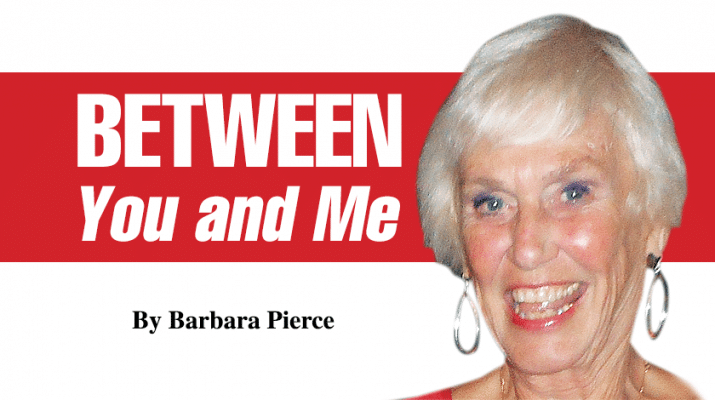By Barbara Pierce
Another mass shooting! As I write this, an 18-year-old man recently killed 19 children and two teachers at an elementary school in Texas. Not many days before that, another 18-year-old man killed 10 people at Tops Market in Buffalo. And, more happening many days since then — more victims.
It’s heart-breaking. Agonizingly heart-breaking. Beyond words to express just how much.
But my purpose is not to write about gun safety. I’m sure you’ve heard a lot about that.
My purpose is to write about forgiveness.
Police officers at the scene in Uvalde waited nearly an hour to go in and confront the gunman while children were being shot at and terrorized.
How can the parents who lost a child ever forgive those who didn’t intervene to save their child?
Who hasn’t experienced a hurt or a loss because of someone else? Perhaps you’ve lost someone due to another’s negligence or you’ve been badly hurt by a parent or your partner, perhaps your partner had an affair or a work colleague claimed credit for something that was your work.
Being hurt by someone, especially when it’s someone you love and trust, can leave you with lasting feelings of anger and bitterness — even vengeance. You may be carrying that around with you. It’s like carrying around a bag of garbage and wondering why you stink.
When someone hurts you, or causes you to feel emotional pain, you have a choice. You can hold on to your anger, resentment and thoughts of revenge. Or you can forgive and move forward.
When you’re unforgiving, you may become depressed or wrapped up in the wrong so that you can’t enjoy the present. You may bring your anger and bitterness into every new relationship. It can define your life and not in a good way.
The dictionary defines forgiveness as when you cease to feel resentment against an offender, when you give up wanting retribution from your offender.
With forgiveness, you give up your anger and no longer hold the abuser to blame and require no compensation, no statement of guilt or apology for what was done.
Forgiveness is letting go of resentment or shame that has resulted from wrongdoing, your own or others.
The act that hurt or offended you might always be with you, but forgiveness can lessen its grip on you and free you from the control of the person who harmed you.
Forgiveness brings you a kind of peace that helps you go on with life.
It’s that simple. And that complex.
You give up your anger and resentment. When we’ve been wronged, anger is perhaps our first emotion.
Resentment is the lingering bitterness, replaying the feeling, dwelling on the thing that makes upset, not letting go of those bad feelings.
“You will not be punished for your anger, you will be punished by your anger,” said the Buddha.
It’s not the bite of the snake that kills you; it’s the poison coursing through your veins that kills you.
When you hold onto your anger, that keeps the focus on the perpetrator. It gives all the power to the other person.
In my own life, I carried resentment and bitterness toward my father for years. Then I wrote my life story. Through that process, I came to understand his actions towards me. I saw it from a different perspective. I truly forgave him when I was able to see the situation from his perspective.
Usually the idea of forgiveness means that one must forgive the person who harmed you. I disagree. I worked at a shelter for persons who were victims of abuse. Many had been very damaged and hurt by others.
These victims often said they’ve been told to forgive their abuser. That they had to forgive their abuser to move on with their lives.
They didn’t know how to do this. They didn’t know how to forgive someone who had damaged them so badly.
What I told them was forgiveness doesn’t mean you’re saying it’s OK what they did to you. It just means you accept that this happened to you and you’re choosing to let go of your anger and resentment.
Accept that you were hurt. And that it wasn’t OK. It shouldn’t have happened, but it did. And you survived. You are a victor, not a victim. You are a survivor with the strength to overcome. You gained some good qualities by being victorious.
Forgiveness changes your brain chemistry. It brings you peace. And there are huge rewards for your health, lowering the risk of heart attack; improving cholesterol levels and sleep; and reducing pain, blood pressure, and anxiety, depression and stress. And research points to an increase in the forgiveness-health connection as you age.

Barbara Pierce is a retired licensed clinical social worker with many years of experience helping people. If you would like to purchase a copy of her book, “When You Come to the Edge: Aging” or if you have questions for her, contact her at barbarapierce06@yahoo.com.

